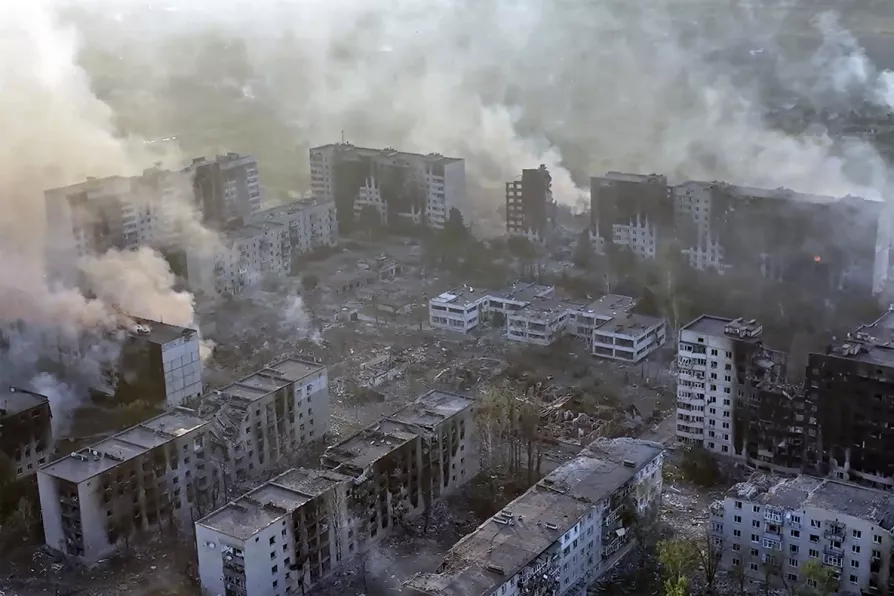ROGER McKENZIE looks at how US doublespeak on the ‘war on drugs’ is used to camouflage its intended grab for of Latin America’s natural resources

 This image taken from a video released by the Ukrainian Tsunami Assault Regiment, Liut Brigade, shows the northeastern frontline town of Vovchansk, Ukraine, during heavy bombardment by Russian forces, May 28, 2024
This image taken from a video released by the Ukrainian Tsunami Assault Regiment, Liut Brigade, shows the northeastern frontline town of Vovchansk, Ukraine, during heavy bombardment by Russian forces, May 28, 2024
BEFORE it even began, it was clear that the recent two-day summit in Stansstad, Switzerland, on “peace in Ukraine” would not — and could not — succeed in moving towards a settlement that would end the decade-long conflict, even if that had ever been a serious intention.
Sixty-eight of the countries invited, including China, declined to attend, leaving the US, Britain, the EU, Nato and their allies to dominate proceedings. Russia, one of the two protagonists, was excluded. Of those present, 12 refused to sign the final communique.
Significantly, these included Brazil, the Vatican City, South Africa and a number of developing countries. In the end, none of the Brics countries, neither the original five nor subsequent members, signed the final document.

LIZ PAYNE condemns how Labour backs war in Gaza and Ukraine, and massive funding for Trident’s nuclear bombs, when billions are needed just to restore public services













